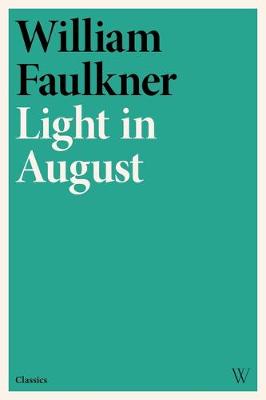Reviewed by jamiereadthis on
Boy, have I missed Faulkner screwing with my head. One of the great myths of our age has to be Faulkner as this self-serious, highbrow literature, because this is about as bloody and pulpy and nasty and fun as it gets. There’s such a heart to this, and a brain, and a pitch-black sense of humor: Faulkner’s not afraid to keep ripping the rug out from under you, challenging everything you think about the depths of people, and then suggesting even his truth is absurd. In fact, that’s what I’d say Light in August is, all the crazy dog-leg turns are there to suggest the ridiculous and then justify it, and then undercut that as well, playing fast and loose with what you think a man is and why. All the while you can’t shake it, I dare you, the idea that Faulkner just wants you to think. He won’t tell you what to think. He’ll keep mixing up and muddling what you think he wants you to think. And that’s how he gets the South right. The perverse delight in it, less interested in morals and capital-T Truth than making you do it: look at the freak show, accept something uncomfortable, and think for yourself.
[Byron] thought. ‘Like a fellow running from or toward a gun aint got time to worry whether the word for what he is doing is courage or cowardice.’
Reading updates
- Started reading
- 28 April, 2012: Finished reading
- 28 April, 2012: Reviewed
